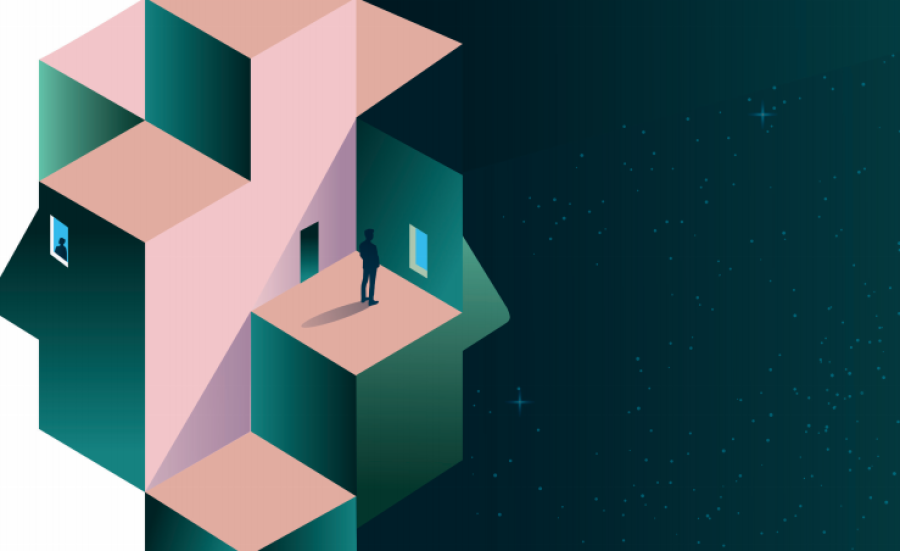Columns
Please mind your head
Why are people so scared to seek help when it comes to mental health?
Rojisha Shahi Thakuri
Whenever I introduce myself as a psychologist, the first reaction I receive from people is: ‘Oh, I guess I have some problems, I think I need some therapy too. Shall I visit you?’ And then it is followed by a giggle or a smirk. This happens during every encounter I have with people, but they never do really visit me afterwards; but I realised with time that when it comes to mental health, we do recognise that we have some emotional uncovering and balancing to do. Nevertheless, we would refrain from visiting a therapist or a psychiatrist because it would mean admitting that these problems need fixing or admitting that we are living with a deformity of some kind.
And who likes that? As humans, we tend to live with this higher sense of self-being. We like to think of ourselves as a problem solver, someone who is in control of our situation. We love to talk about grinding work stressors, our toxic relationships and how hard life has been to us. We feel that identifying these problems still won’t make us any less, rather it makes us intelligent and self-aware beings. Merely talking about it still won’t tap on our feeling of autonomy; but the moment we seek help, the whole idea of autonomy comes crashing down, which is why we may loath the idea of getting help. As humans, we love the idea of being superior beings so much that we would rather keep things to ourselves than ask for help, thinking it might make us look vulnerable and small. And nobody wants that.
Looking for help
But for those of us who lack the feeling of autonomy and are actually looking for help, why do we still shy away from it? Well, this is associated with the risk of losing social value. I remember when I was in my early teens, one of my family members was struggling with depression. She asked me not to tell anyone about her having depression or that she was taking anti-depressant pills. She was scared of being humiliated by her own family members by being referred to as ‘khuskeko’ or someone who takes ‘dimag ko dabai’.
This hit me really hard as a teen. I grew up thinking that she was wrong to take anti-depressants, and that depression was the worst thing somebody could go through. Fast forward to a decade later, and such a mentality still prevails. People are scared to admit they have depression or take anti-depression pills because our society views it as taboo. People believe that such pills are addictive, or they are scared that they might have side effects.
The bigger problem is that anti-depressant pills are not socially accepted. Our society perceives people who take pills for depression as weak and vulnerable. Society assumes that the ones who visit a psychiatrist must have lost their minds or that they must be so lonely they need to seek help from someone other than friends or family.
Now, coming to the people who visited a psychiatrist or a psychologist and had a bad experience, and do not want to seek help anymore, I definitely understand why they feel that way. When I was working as an understudy, I realised that many psychiatrists had one single approach towards helping their patients, that is, prescribing medicine. These psychiatrists conducted very little assessment of their patients’ problems, such as issues with their family, problems in their relationships or problems related to childhood trauma, which cannot be solved by prescribing medicine. Of course, they did not have time to assess such information. With 20 to 30 patients waiting impatiently to see one psychiatrist on a daily basis, there was no chance the psychiatrist would have been able to help all of them by assessing each and every aspect of their problems.
Unrealistic expectations
Furthermore, our health system has failed to recognise the importance of psychologists. Very few psychiatrists understand that psychologists can be helping hands in their profession. Another problem is that people usually do not know what to expect when they go for a therapy session. They imagine it involves sitting on a comfortable chair and talking to their psychologist who listens to their problems. Well, this is partly true, as psychologists we are there to listen to our patients, but more than that, our job is to help them overcome their problems with behavioural means. This takes time and cannot be done in a single session. Therapy is an ongoing process that needs a lot of compliance from both sides, and it is not as easy as popping pills to miraculously recover or fall asleep at night. Lack of this understanding results in unrealistic expectations from patients, who get disappointed when their problems do not disappear in a single session.
So, what might the solution be? The solution is to keep talking about mental health and therapy. We need to normalise therapy and not be ashamed of it. We need to be more focused on taking care of our mental health as actively as we take care of our physical health. As emotional and social beings, we need to keep our emotional and social needs in check, and never shy away from feeling any kind of emotion. It is also high time for the government to draft and implement the necessary plans and policies, and conduct more awareness campaigns around mental health. But then again, as a psychologist, I strongly believe that change needs to start from within us. Therefore, until and unless we make ourselves aware of what our needs are and rightly admit that we need help, no one can help us.




 9.12°C Kathmandu
9.12°C Kathmandu















